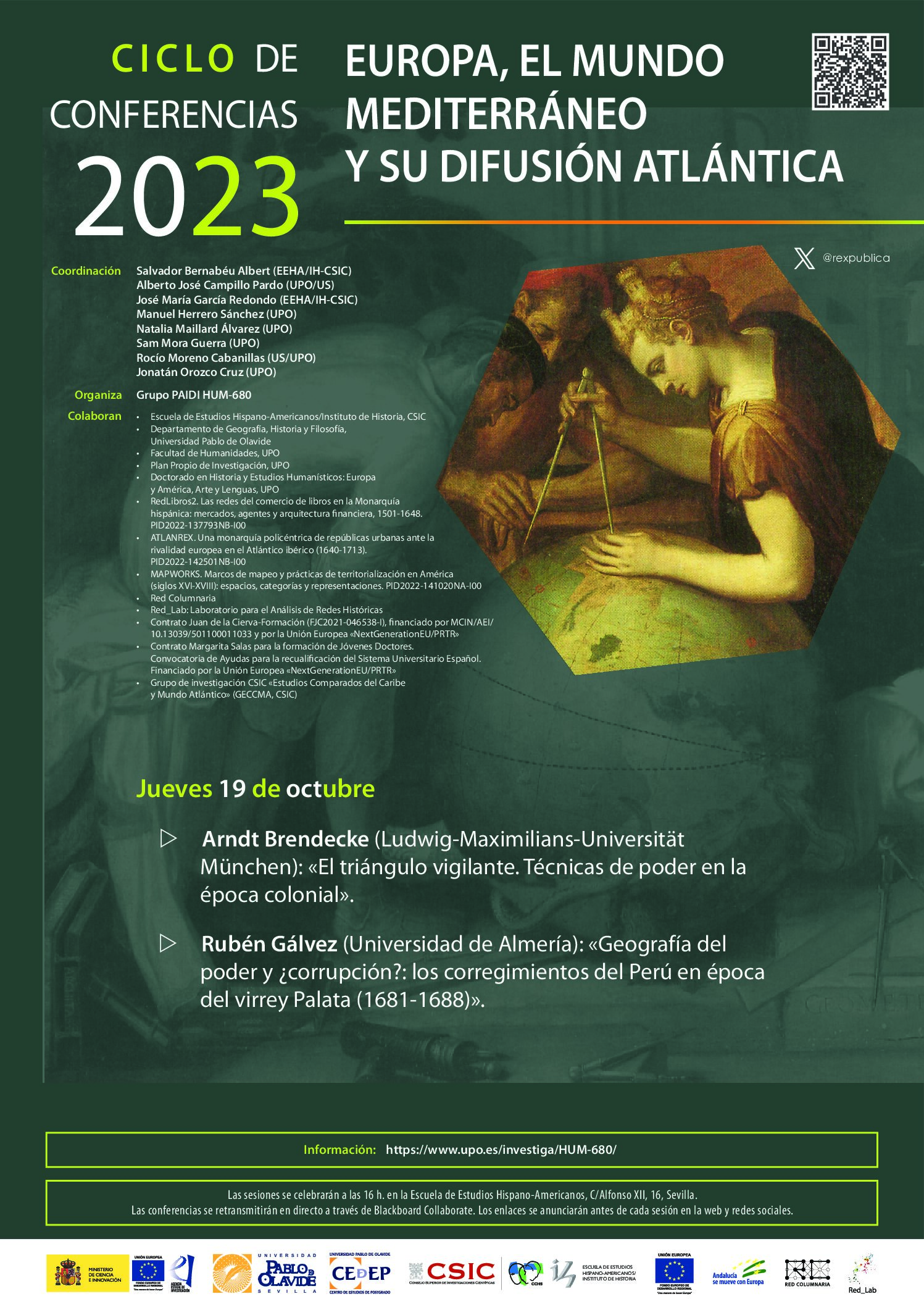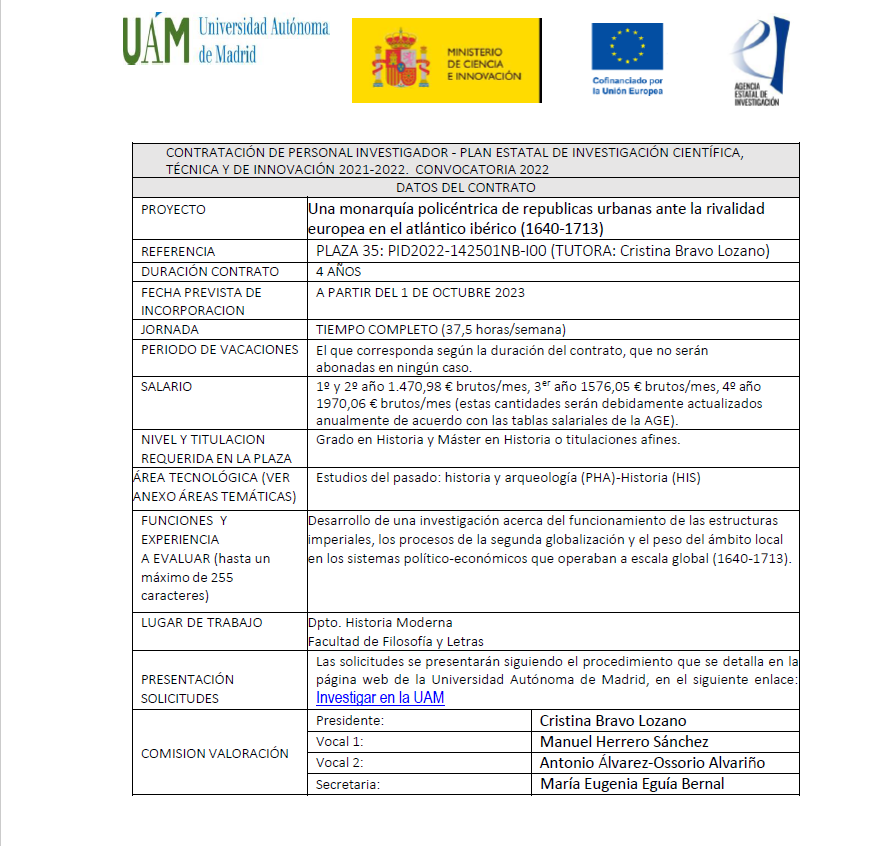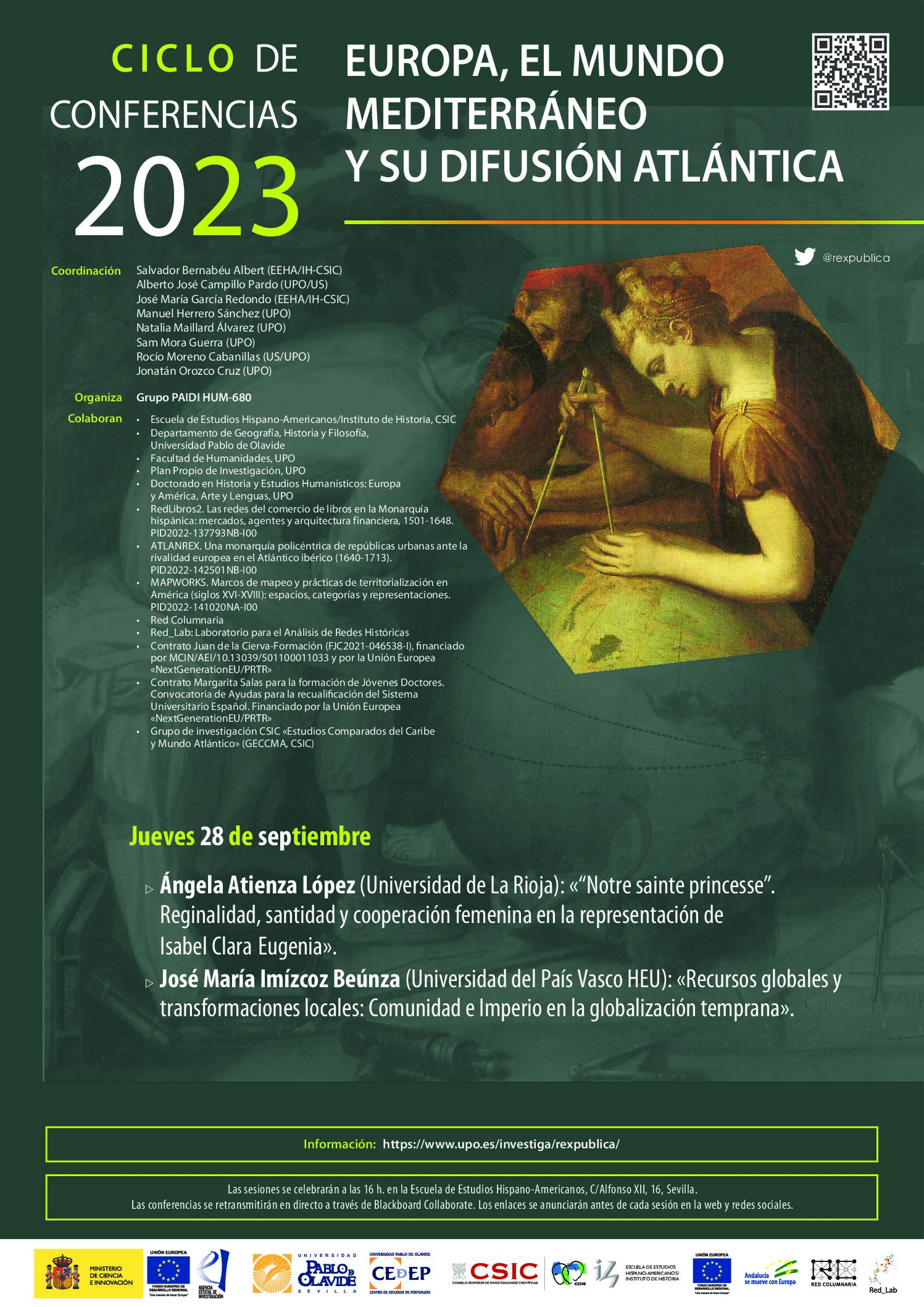Geometry, Frans Floris (1557)
Estudios sobre Europa,
el mundo mediterráneo
y su difusión atlántica
(HUM 680)
Latest news
Sixth session of the conference cicle Europa, el mundo mediterráneo y su difusión atlántica (2023)
The group PAIDI HUM-680 would like to invite you to the next session of the conference cycle Europe, the mediterranean world and its transantlantic spread, which will take place n
The call for a FPI contract asssociated to the project ATLANREX “Una monarquía policéntrica de republicas urbanas ante la rivalidad europea en el atlántico ibérico” (1640-1713) has been hereby published
The call for a training of research personnel (FPI or Formación del Personal Investigador) contract asssociated to the project ATLANREX Una monarquía policéntrica de republica
Workshop: Patterns of Rebellion in the Iberian Empires 16th-19th centuries, 2nd-3rd October, 2023
The group PAIDI HUM-680 announces the congress Patterns of Rebellion in the Iberian Empires 16th-19th centuries, part of the project RESISTANCE, which will take place during the 2n
Fifth session of the conference cicle Europa, el mundo mediterráneo y su difusión atlántica (2023)
The group PAIDI HUM-680 would like to invite you to the next session of the conference cycle Europe, the mediterranean world and its transantlantic spread, which will take place ne



